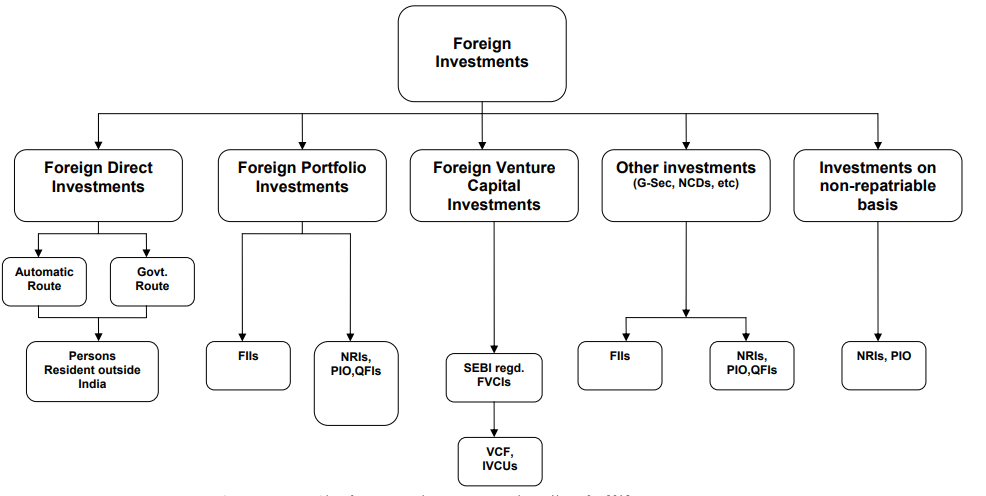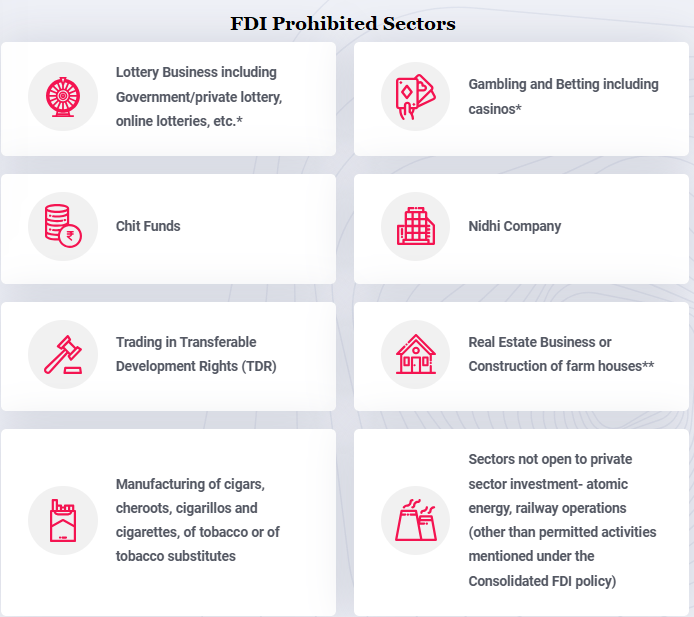The Reserve Bank of India (RBI) introduced a streamlined operational framework to allow foreign portfolio investors (FPIs) to convert their investments to foreign direct investment (FDI).

Foreign investment in India is governed by sub-section (3) of Section 6 of the Foreign Exchange Management Act, 1999.
|
|
Foreign Direct Investment (FDI) |
Foreign Portfolio Investment (FPI) |
|
Definition |
Investment made by foreign investors to obtain a substantial interest in the enterprise located in a different country. |
Investing in the financial assets of a foreign country, such as stocks or bonds available on an exchange. |
|
Nodal Ministry |
Consolidated FDI Policy is drafted Department for Promotion of Industry and Internal Trade (DPIIT), Ministry of Commerce and Industry. |
Finance Ministry |
|
Type |
Direct Investment |
Indirect Investment |
|
Market |
Inflows in primary market |
Inflows in secondary market |
|
Role of Investors |
Active Investor |
Passive Investor |
|
Degree of Control |
Direct control over the company management |
No direct control but can influence board meeting decision. |
|
Term |
Long term investment |
Short term investment |
|
Investment Instruments |
Direct Capital Investment involving mergers, acquisitions, or partnerships |
Stocks, ADRs, GDRs, bonds, mutual funds, and exchange traded funds |
|
Entry and Exit |
Difficult |
Relatively easy |
|
Risks Involved |
Stable |
Volatile |
Single FPI Regime came into effect from 1st June, 2014 by subsuming FIIs, their sub-accounts and qualified foreign investors (QFIs).
|
Pros |
Cons |
|
|

FPIs have pulled out over Rs 1.36 lakh crore from the cash market since October 1 this year.